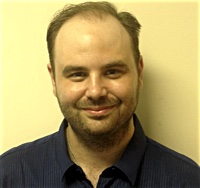Is Cognitive Therapy Enduring or are Antidepressant Medications Iatrogenic?
$10.00
Description
 Presenter: Steven D. Hollon, Ph.D., is Professor of Psychology at Vanderbilt University. He received his doctorate from the Florida State University in 1977 with an internship with Aaron Beck at the University of Pennsylvania before joining the faculty at the University of Minnesota. His research focuses on the nature and treatment of depression. He has over 250 publications and has placed numerous students in both academic and clinical research positions. He is past president of the Association for Behavioral and Cognitive Therapies and current president of the Society for a Science of Clinical Psychology. He is the recipient of the George A. Miller Award for Outstanding Article from the American Psychology Association (APA), a Distinguished Scientist Award from the Society for a Science of Clinical Psychology, and Awards for Distinguished Scientific Contribution and Distinguished Professional Contribution to Clinical Psychology from the Society of Clinical Psychology (Division 12) of the APA. A former director of clinical training, he maintains an active clinical practice in the context of his research program. Overview: Dr. Hollon’s presentation will be based on a series of randomized controlled trials comparing cognitive therapy vs. medications and animal literature examining medication effects. Objectives: (1) Participants will learn that cognitive therapy appears to have an enduring effect that reduces risk for relapse following treatment termination; (2) Participants will learn that combining medication with cognitive therapy may undermine the latter’s enduring effect; (3) Participants will learn that antidepressant medications may inhibit spontaneous remission and leave patients at elevated risk for relapse at any point that they try to discontinue medications.
Presenter: Steven D. Hollon, Ph.D., is Professor of Psychology at Vanderbilt University. He received his doctorate from the Florida State University in 1977 with an internship with Aaron Beck at the University of Pennsylvania before joining the faculty at the University of Minnesota. His research focuses on the nature and treatment of depression. He has over 250 publications and has placed numerous students in both academic and clinical research positions. He is past president of the Association for Behavioral and Cognitive Therapies and current president of the Society for a Science of Clinical Psychology. He is the recipient of the George A. Miller Award for Outstanding Article from the American Psychology Association (APA), a Distinguished Scientist Award from the Society for a Science of Clinical Psychology, and Awards for Distinguished Scientific Contribution and Distinguished Professional Contribution to Clinical Psychology from the Society of Clinical Psychology (Division 12) of the APA. A former director of clinical training, he maintains an active clinical practice in the context of his research program. Overview: Dr. Hollon’s presentation will be based on a series of randomized controlled trials comparing cognitive therapy vs. medications and animal literature examining medication effects. Objectives: (1) Participants will learn that cognitive therapy appears to have an enduring effect that reduces risk for relapse following treatment termination; (2) Participants will learn that combining medication with cognitive therapy may undermine the latter’s enduring effect; (3) Participants will learn that antidepressant medications may inhibit spontaneous remission and leave patients at elevated risk for relapse at any point that they try to discontinue medications.





Reviews
There are no reviews yet.